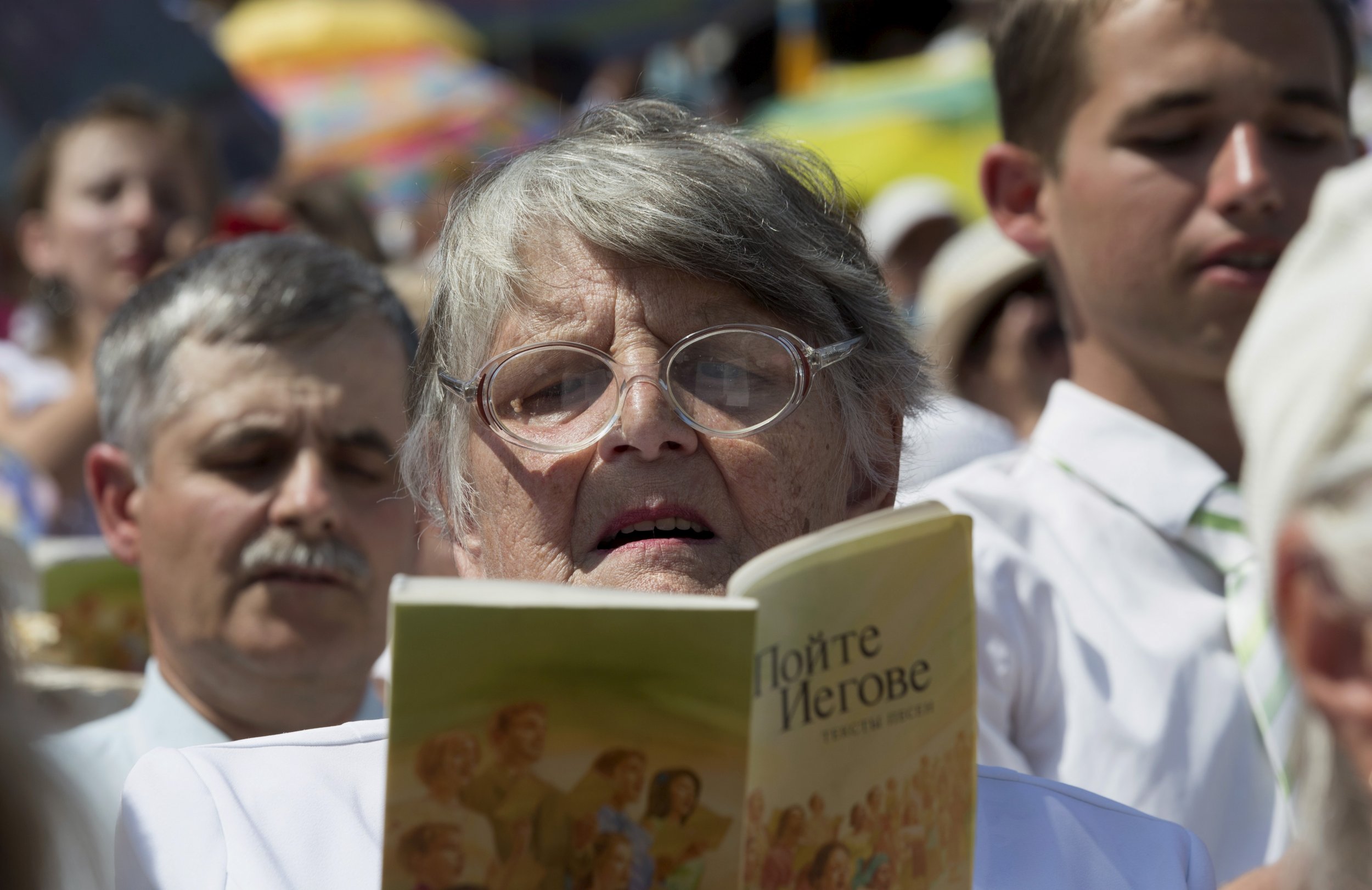
Russia's Supreme Court banned all activities of Jehovah's Witnesses in the country last month under its anti-extremism law. Yet at the same time, the Satanic Church of Russia is celebrating its one-year anniversary as an officially recognized religion in Russia. And it did so by cheering the action taken against Jehovah's Witnesses.
Related: After Ban, Jehovah's Witnesses in Russia Harassed by Police During Religious Services
"We consider it necessary to speak out against missionary activity," Satanic Church leader Oleg Sataninsky told Russian news site 66.ru as reported by The Moscow Times. "The Jehovah's Witnesses had an extreme approach. We oppose indoctrination and religious propaganda."
Sataninsky, whose true surname has not been verified, said that the church had existed in Russia but decided to register last May to avoid being labeled a "totalitarian sect" and to show authorities that they were not extremist.
He insists that followers of the church are not devil worshippers and do not engage in the types of bloody rituals and sacrifices commonly found in movie depictions. Instead, Sataninsky said, they follow The Satanic Bible, which was published by American Anton LaVey, considered the founder of the global Church of Satan, in 1969.
It is just fine that they are legal while Jehovah's Witnesses are banned, he added, because the Satanic Church does not engage in "rabid propaganda."
Russia's anti-extremism law came into effect in 2002, following Russia's second war in Chechnya and the 9/11 attacks in the United States. It was followed last year by a set of measures named the Yarovaya Law. Although they were said to be aimed at combatting terrorism, critics alleged that they constituted an attack on freedom of speech and conscience. Specifically, they banned proselytizing, preaching and praying outside of "specifically designated places," like officially recognized religions.
Jehovah's Witnesses, who number 175,000 members in Russia, were warned last March that their activities constituted extremism. A year later, the justice ministry made the decree official, a decision that was upheld by the Supreme Court, liquidating all 395 branches in the country and banning all gatherings.
The move was widely condemned in Europe and the United States, with the U.S. Commission on International Religious Freedom stating that it represented "paranoia" on behalf of Russian President Vladimir Putin. The commission also elevated Russia to the highest level of religious freedom abusers in its annual report last month.
Jehovah's Witnesses have said that they will appeal the decision although they admit there is little prospect of it being overturned.
Uncommon Knowledge
Newsweek is committed to challenging conventional wisdom and finding connections in the search for common ground.
Newsweek is committed to challenging conventional wisdom and finding connections in the search for common ground.
About the writer
Jason Le Miere is from the British island of Jersey, which has absolutely no relation to the Garden State, other than ... Read more
To read how Newsweek uses AI as a newsroom tool, Click here.








